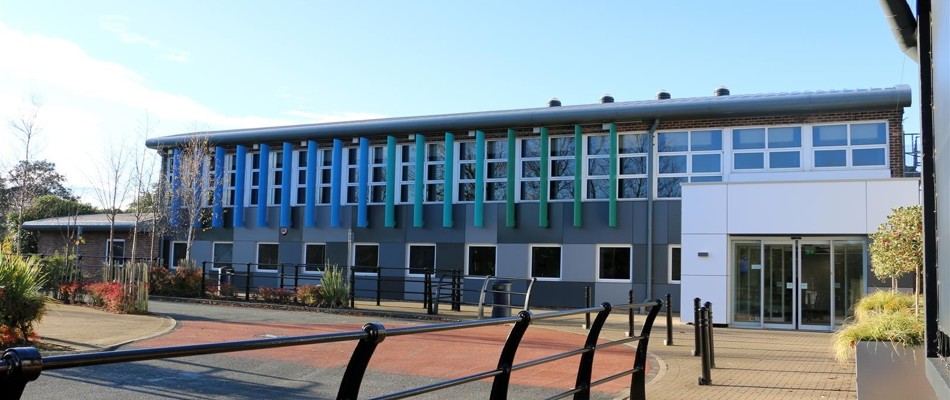Net-zero, sixth form colleges, and students
Back
This blog was written for us by Salix, who provide interest-free Government funding to the public sector to improve energy efficiency, reduce carbon emissions and lower energy bills.
Organisations across the public sector, including Sixth Form Colleges, are showcasing their commitment and dedication to net-zero by considering ways they can reduce their carbon emissions and decarbonise their estates.
With the Government announcing a ten-point plan for a green economic recovery, including the generation of clean power through hydrogen technologies, carbon capture and electric vehicle charging points, it can feel overwhelming for smaller organisations, such as Sixth Form Colleges, to understand where they can also make a difference and contribute to the UK’s net-zero emissions target.
In addition to implementing behavioural changes and sustainable practices, introducing energy efficient upgrades to existing, potentially inefficient technologies across a college estate can make substantial energy and financial savings.
Behavioural change
Introducing sustainable practices into the curriculum can help provide students with the opportunity to increase their knowledge and skills around climate change and the importance of the role the younger generation have in making a difference to their college and wider community. These practices are ones which can be taken forward into their everyday lives.
Embedding sustainable practices into the learning environment can provide opportunities for students to take an active role in combatting climate change and feel inspired to assess their own behaviours. This could include promoting walking and cycling or an energy awareness campaign, encouraging switching off lights and heating when rooms aren’t in use.
Some further education institutions involve students in estate-wide changes being made to the college and the associated benefits of this, for example highlighting the ongoing reduction of carbon over time via noticeboards or on-site screens.
Educating students on both the outcomes of an inefficient climate change strategy and the numerous technologies which may be used to tackle this issue can help them recognise that the climate crisis is a current and pressing issue.
The Sustainable Development Goals1 are a great resource for learning and showcase the shared vision when looking to reach net-zero.
Race to Zero
Opportunities for colleges to get more involved in campaigns showcasing their commitment and dedication to the net-zero agenda are becoming more available.
For example, higher and further education institutions can join forces and become a voice for change by joining Race to Zero, a global campaign to rally leadership and support from businesses, cities, regions, and investors for a zero-carbon recovery that supports sustainable growth.
The primary objective of Race to Zero is to build momentum around the shift to a decarbonised economy ahead of COP26.
By joining, organisations are committing to a pledge of net-zero by 2050 (or sooner), explaining what steps they will be taking to achieving net-zero, acting towards net-zero, and committing to reporting their progress annually.
The EAUC (Environmental Association for Universities and Colleges) has more information about this on their website2, including how to participate in the campaign.
Funding for energy efficiency and decarbonisation projects
Salix has seen an increase in the number of Sixth Form Colleges getting in touch to look at ways in which they can reduce their carbon footprint and contribute towards the UK’s net-zero target, with many developing their own carbon management plans and internal reduction targets.
Since 2004, Salix has supported over 120 projects across 30 Sixth Form Colleges, investing over £2.5m. These projects have already made substantial financial and energy savings, saving on average almost £5000 and 31 tonnes of carbon per year.
Winstanley Sixth Form College3 has been working on reducing their carbon footprint since 2003. The College used Salix interest-free funding to invest £158,906 in the installation of several energy efficient technologies across their estate.
The College used the loan to continue upgrading and rebuilding its estate to ensure that whilst it has grown and taken on more students, its energy use and carbon footprint have continued to reduce. Technologies installed included cavity wall insulation, LED lighting, occupancy and daylight controls, biomass and gas boilers and voltage optimisation.
Thanks to the new, more energy efficient technologies, the college has saved over £32,500 and 138 tonnes of CO2 per year; total financial savings will amount to £562,700 over the lifetime of the technologies, far more than they cost to install.
Public Sector Decarbonisation Scheme (PSDS)
In September 2020, the Department for Business, Energy and Industrial Strategy launched the Public Sector Decarbonisation Scheme (PSDS), delivered by Salix Finance, to encourage green investment, unleash innovation, back businesses and support the Government’s net-zero and clean growth goals.
The scheme provided public bodies, such as Sixth Form Colleges, with £1bn of grant funding to deliver stimulus to the energy and heat decarbonisation sectors, supporting jobs and delivering significant carbon and financial savings.
Sinead Desmond, Programme Manager at Salix, said: “Sixth Form Colleges have a large part to play in contributing towards a low-carbon future, with several opportunities to take action and make a considerable difference. Salix is pleased to offer funding and support to allow some of these opportunities to come to fruition.”
PSDS is a big opportunity for colleges to forge a path toward net-zero, but we hope it is by no means the last such opportunity, and stand ready to act alongside the sector over the coming pivotal years as we make green changes for students, the planet, and of course colleges’ bottom lines.
References
1 United Nations Sustainable Development – 17 Goals to Transform Our World
2 Race to Zero for Universities and Colleges (sdgaccord.org)
3 Information for Winstanley Sixth Form College was taken from a 2017 Salix Finance case study example: Winstanley.indd (salixfinance.co.uk)

